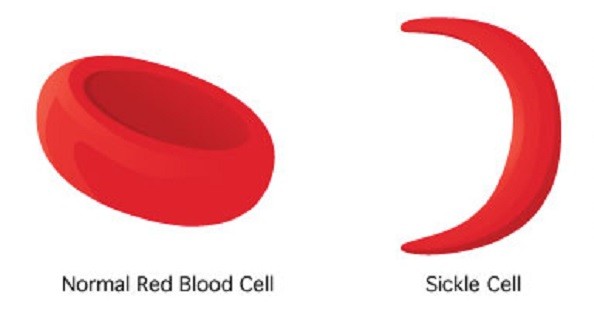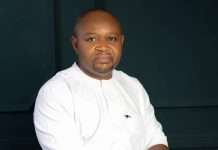
Renowned Endocrinologist and Administrator, Dr Sonny Kuku, has urged governments to provide special clinics where Sickle Cell patients can get treatment free or subsidised treatment.
Kuku, who is also the co-Founder of Eko Hospital, made the call in Lagos State during a public lecture with the theme: “Sickle Cell Disorder is Not a Death Sentence”.
The lecture was organised by the Sickle Cell Foundation of Nigeria (SCFN) in Lagos to mark 2023 World Sickle Cell Disorder Day, with theme: “Building and strengthening Global Sickle Cell Communities, Formalising New-born Screening and Knowing your Sickle Cell Disease Status”.
The World Sickle Cell Day is observed on June 19 each year to raise awareness about sickle cell disease (SCD) and its impact on individuals, families and communities worldwide.
Sickle cell disorder is a genetic disorder that affects the red blood cells.
The red blood cells in people with sickle cell disease are shaped like a crescent moon or sickle. These sickle-shaped cells can block blood vessels, leading to pain, infections, and other health problems
Kuku said that Nigeria had the highest population of Sickle Cell Disorder patients because the country was the largest black nation.
“The government should put up screening centres for sickle cell at birth, in order to know those who are carriers and those with Sickle Cell Disorder.
“Also, the government needs to put up a special clinic where Sickle Cell patients can get treatment for free because sickle cell treatment is very expensive.
“The government should also make prenatal testing, premarital testing and pre-employment testing to have Sickle Cell and genotype testing as part of it,” he said.
Kuku said that the disorder was no longer associated with early death contrary to the general perception of the public.
“Sickle Cell Disorder was formerly associated with early death but today, enough evidence has been deduced to show that the disorder is not a death sentence.
“This is as a result of improved prevention, early diagnosis, improvement in management of drugs, bone marrow and gene transplants,” the doctor said.
He said that with the improvements, an average Nigerian `Sickler’ who would have died before age five now lived up to 50 years and above.
“Pre-marital diagnosis and pre-employment diagnosis and other medications have improved the survival rate,” Kuku said.
The doctor said that one of the biggest problems about sickle cell disorder patients was ‘psychosocial’.
“People look at them as being abnormal because they get crisis at all times and the things their mates can do, they can’t do.
“So, we train their mothers to support them, and then also give the children themselves some psychotherapy treatment to help the overcome psychosocial problems,” he said.
Kuku explained that the psychosocial problem with sicklers was very serious and traumatic, as the sudden crisis makes carriers wonder what they are living for.
He charged the government to improve its efforts and support for the battle against Sickle Cell Disorder.
Meanwhile, a retired Professor of Haematology and Blood Transfusion from College of Medicine, University of Lagos, Ibironke Akinsete, recommended early screening of newborns in order to identify those with the disorder.
“All newborns must be screened because in this way, you will be able to identify those that have the condition; screening brings out children who have this disorder.
“It’s important to be identified early so that care can be taken and advise can be given to the parents on how to take care of the child,” she said.
Proffering other solutions to the management of sickle cell disorder, the professor recommended comprehensive care multidisciplinary approach in the management of SCD.
“Comprehensive care means that they are managed from birth in every aspect of their life.
“Once they are diagnosed, they are managed and they are taught about it, they are counseled and told what to do in crisis. They know about it and how to deal with it,” she said.
Akinsete lamented the high cost of treatment and management of sickle cell and recommended a static approach for fund raising to tackle the health disorder.
“We need a strategic plan on how to manage, source for fund and look after these patients,” she said.
The professor discredited the alleged efficacy of herbal remedy in the cure for sickle cell disorder due to its lack of clinical or laboratory confirmation.
Earlier at a media briefing, Chief Executive Officer, SCFN, Dr Annette Akinsete, said the foundation in collaboration with the Lagos University Teaching Hospital (LUTH), opened a dedicated, multidisciplinary, Post -Transplant Clinic at the newly established SCFN-LUTH Bone Marrow Transplant (BMT) Centre, LUTH Lagos.
She said it would address the gap in care for the increasing population of Nigerians who have undergone BMT transplant procedure abroad, the Sickle Cell Foundation Nigeria (SCFN).
She said that BMT involved the transfer of blood-forming cells from a healthy person (Donor), to replace the bone marrow of an individual with the sickle cell disorder.
According to her, the bone marrow of the recipient begins to produce normal blood cells like the donor.(NAN)











